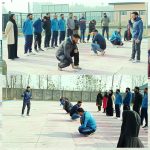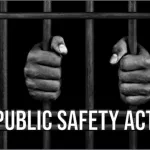PERSPECTIVE
The education system in many regions, including Jammu and Kashmir, is grappling with a disturbing trend: a precipitous decline in school attendance, particularly among science stream students in the pivotal 11th and 12th grades. This alarming phenomenon coincides with a meteoric rise in the popularity of coaching institutes, which, while ostensibly preparing students for entrance exams to professional courses, are inadvertently contributing to a systemic neglect of formal schooling during these academic and personality formative years. The conspicuous absence of students from schools at the Plus 2 level has become an accepted norm, eliciting an inexplicable apathy from both civil society and government. This pervasive reality is so self-evident that it requires neither confirmation nor verification. It is open to all that private coaching institutes are normally functioning during school hours which is otherwise banned.
Why Coaching Craze?
- Perceived inadequacy of schools: The burgeoning coaching industry is a reflection of several interconnected factors. One primary driver is a popular belief that there is an inadequacy of the school system to prepare students for the highly competitive entrance exams for professional programmes and courses. A curriculum/content that may not adequately align with exam requirements can contribute to the perception. This is also believed that there is a visible shortage of experienced and effective science faculty in schools.
- Parental pressure: Intense competition for admission into prestigious institutions creates immense pressure on students and their parents. The fear of missing out on future opportunities can lead parents to priorities coaching institutes that promise higher success rates, even if it means incurring significant financial costs. Still, only a small chunk of students crack the exams and rest fail to do so because their talent and capabilities mismatch the destinations they are setting for themselves mostly because their parents wish them to do so. We take time to accept that wishes and realities are not the two sides of the same coin.
- Coaching culture and marketing: The coaching industry itself plays a crucial role in perpetuating this trend. Aggressive marketing campaigns, testimonials from successful students, and a focus on highlighting the perceived benefits of coaching can create a self-fulfilling prophecy, convincing students and parents that coaching is indispensable for academic brilliance. If we look back and ponder that coaching or tuition was considered not less than an embarrassment for a student and his parents when a teacher would call his parents and ask them to arrange a tutor for the student. Now, it has become a fashion of the day with too much craze. How it has turned to be so from a mere sense of embarrassment is required to be examined.
Coaching has undeniably become an unavoidable trend, particularly in the realms of personal development and professional advancement. The allure of the promise of unlocking hidden potential has fueled the demand for coaches across various domains. While coaching offers valuable support and can be a catalyst for growth to crack the entrances for professional courses, it’s essential to distinguish between genuine coaching and mere fads. Some individuals may seek coaching without a clear understanding of their goals or a genuine commitment to self-improvement, viewing it as a quick fix or a status symbol. This trend can dilute the true essence of coaching, which involves a deep partnership between coach and student, fostering meaningful change and lasting impact.
The detrimental consequences of skipping school for coaching:
Loss of holistic development
Beyond academic knowledge, schools provide invaluable opportunities for social interaction, moral development, and life skills. Neglecting school can significantly hinder these crucial aspects of a student’s growth as coaching centers have no such priorities in their schedule of business.
Teacher-student disconnect
Relying solely on coaching deprives students of the opportunity to build meaningful relationships with their school teachers. This can be detrimental for personalized guidance, mentorship, and overall well-being. True teachers at school act as godfathers for their students, monitor their intellectual and social growth and teach them life skills to fight against the challenges ahead.
Mental health challenges
The pressure to excel in coaching exams, coupled with neglecting schoolwork, can lead to heightened stress, anxiety, and even burnout. How can we afford to watch our future being put into the whirlpool of mental agonies and costly compromises? Health is nowhere a concern at coaching institutes. Students at +2 level particularly girls essentially require a well guided consciousness about their health and hygiene; which is, otherwise, a well defined part of educational policies and its transaction is tried to be ensured in and outside the classrooms in school campuses.
No exposure to ethical dilemmas
Literature, humanities and science classes equally present students with ethical conflicts, prompting them to analyze and develop their own moral compass. There is no smell of these decisive personality traits being taken care of in private coaching centers.
Lacking mentorship
Unlike private coaching centers which only focus on exam preparation, schools provide a comprehensive education that encompasses academic, social, and emotional development. Teachers play a crucial role in this holistic approach, guiding students through challenges, celebrating their successes, and fostering a lifelong love of learning. They are mentors, counselors and guides, offering soulful support and encouragement.
Absence of discussion and debate
Engaging in discussions on social issues and current events allows students to grapple with moral complexities and understanding different perspectives has been an indispensable role of formal schooling. Time constraints and other priorities don’t allow such intellectual exercises in tution centers.
No organized system of discipline
A well-defined code of conduct is possible only in schools which establish clear expectations for behavior, promoting a sense of order and responsibility with a fair system of consequences for misconduct and rewards for positive behavior. This reinforces desired behaviors and discourages negative ones. Meeting deadlines, following classroom rules, and managing time- all contribute to developing self-discipline which is a key aspect of a well-rounded personality. Coaching institutes have no such priorities to ensure holistic discipline; rather, at times, glaring evidence of de-socialisation and indiscipline is surfaced. That must be viewed as a big social concern.
No concept of community service
Participating in community service projects allows students to put their values into action and develop a sense of social responsibility. This is the soul of schooling which has nothing to do in private coaching centres. Lack of teaching to develop a sense of community services among youth can lead to an individualistic preference based society, an unhealthy trend.
Missing out leadership opportunities
Taking on leadership roles among students, a number of student clubs, houses, parliaments and committees are constituted to afford the students with the opportunities to demonstrate, leadership with integrity, fairness, and the ability to motivate others. This significant aspect of life can’t be seen anywhere other than schools.
Lack of co-curricular and recreational means
Private coaching centers, while focused on academic excellence, often overlook the importance of sports and recreational activities. Unlike schools, where students enjoy a well-rounded education that includes physical activities, these centers primarily prioritize theoretical learning. This lack of sports and recreational means limits students’ opportunities for physical exercise, teamwork, and social interaction. In contrast, schools provide a vibrant environment where students can spend quality time with friends, fellow students, and teachers, fostering social bonds and emotional well-being.
Absence of morning assembly sessions
Morning assembly is a cornerstone of school life, fostering a sense of community and setting a positive tone for the day. It provides a platform for prayer, inspiring speeches, promotion of values, patriotism, and academic excellence. It also offers a chance for students to showcase their talents through performances and debates.
What next?
The growing reliance on coaching institutes for Grade 11 and 12 science students, leading to the complete neglect of formal schooling for two critical years, is a serious issue. All stakeholders, from schools to the government and society at large, are aware of the situation. Yet, no one seems genuinely concerned about the underutilization of vast infrastructural and human resources available at higher secondary schools due to the significant absence of students. The alarming trend of “dummy admissions” further exacerbates the problem which makes it strange in the strategic implementation phase of NEP-2020. These dummy students plainly appear in annual board exams, otherwise not eligible according to the governing rules of attendance required for appearing in the exams.
Conclusion
Society has developed the perception that higher secondary schools lack effective teaching and robust infrastructure for science subjects. Consequently, parents and students have normalized the replacement of formal schooling with tuition centers. This trend directly contradicts fundamental educational policies and philosophies and cannot be ignored under any circumstances. Moreover, the absence of proper monitoring mechanisms to ensure that coaching institutes adhere to ethical practices and avoid scheduling conflicts with school hours is a cause for concern.
Both civil society groups and authorities have remained silent on this issue, undermining the core principles of formal education. The matter is not an easy one and no individual package of suggestions seems to be effective to tackle the issue with success. It has now become a new pattern and is evolving as a parallel system to the established educational structure; not less than a state within state. Though the normal tuition is functional, if it is posing a challenge to the existence of formal teaching at plus two levels in schools, it is absolutely bizarre.
Whether the evolved perception of faulty or weak teaching at higher secondary level is fake or a fact along with other micro and macro level determinants leading to en-masse replacement of schooling with tutioning, needs to be methodically studied by constituting a high power committee composed of academics, administrators, representatives from the faculties teaching at higher secondary level and the prominent civil society members.
The findings/recommendations of the committee should be discussed for strong and robust interventions to streamline and restore the glory of formal and disciplined schooling at +2 levels with private coaching, not as an aversive alternative, but only as an academic support without disturbing the ecosystem of formal schooling.
(Author is a regular columnist of Rising Kashmir and can be reached at: [email protected])








